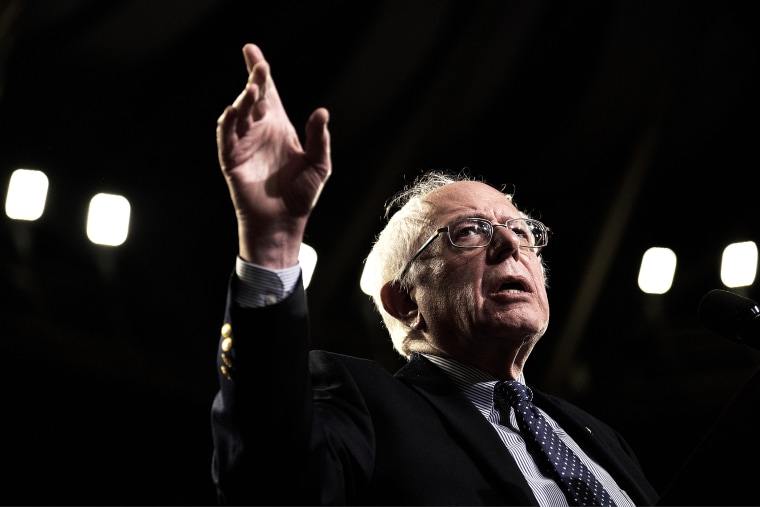"Look, here's the truth. You're right, I am the longest serving independent in the history of the United States Congress. And when we gave some thought to running for president, and the reason I gave thought, honestly, is not because I disrespect Secretary Clinton. I've known her for 25 years and I respect her. "I just happen to believe that in this moment of history, given the crises that we face, it is too late for establishment politics and establishment economics. So we did have to make that decision. Do you run as an independent? Do you run within the Democratic Party? We concluded -- and I think it was absolutely the right decision -- that, A, in terms of media coverage, you have to run within the Democratic Party. "Number two, that to run as an independent, you need, you could be a billionaire. If you're a billionaire, you can do that. I'm not a billionaire. So the structure of American politics today is such that I thought the right ethic was to run within the Democratic Party."
Bernie Sanders explains his loose Democratic ties
There may have been a time a loose affiliation with a party would be disqualifying in a presidential race, but that's simply not the case now.

America's current two-party system has existed for about 160 years, and in that time, presidential elections have always featured the same basic framework: the Democratic Party has nominated a Democratic candidate, the Republican Party has nominated a Republican candidate. Independents have run on third-party tickets (and occasionally fourth).
Bernie Sanders is challenging this model in ways we haven't seen: the Vermont senator is an independent who has caucused with Democrats on Capitol Hill throughout his congressional career, but who's never identified himself in any kind of formal way as a Dem. In fact, he's run against Republican and Democratic candidates for decades.
When was the last time a major party's presidential nominee wasn't actually a member of the party? It's never happened; Sanders would be the first.
As an MSNBC town-hall event in Ohio yesterday, the very first question asked the senator to talk about this decision: "Throughout your career in Congress, you ran as an independent while caucusing for Democrats. I'm curious about what went into your decision to run for president as a Democrat. Wouldn't it be more revolutionary to work outside the traditional political party structure?"
Sanders' candid response raised a few eyebrows:
There's some evidence that Sanders actually opposed the idea of running as a Dem, but he was eventually talked into it by aides who insisted any other route would inevitably fail.
For some of Clinton's allies, Sanders' answer yesterday didn't sit right. American United for Change chief Brad Woodhouse has published quite a few tweets since last night, questioning the commitment of a presidential candidate who entered a party's primary process "for media exposure."
Voters will obviously draw their own conclusions about whether or not this is an area of concern, but I think it's fair to say Sanders' successes thus far in Democratic contests -- and to a lesser extent, even Donald Trump's successes in Republican contests -- point to something interesting about the state of modern partisanship.
I wondered at the outset of the race whether Democratic voters would mind Sanders' independent affiliation. For longtime partisan activists -- folks who've worked within the party for years, stuffing envelopes, making phone calls, offering financial support, knocking on doors, etc. -- it seemed possible to me that Sanders would be seen as an outsider and face some resentment. For the senator, this was a marriage of convenience rather than a genuine commitment, and Democratic die-hards might have a problem with that.
Except, that doesn't seem to be the case. As the campaign season has progressed, I've seen little evidence of voters taking any interest at all in Sanders' partisanship, or in this case, the lack thereof, and I rather doubt his candid answer yesterday -- he's running as a Dem because he wants media attention and can't afford to run an independent race -- will do any real harm to his campaign.
There used to be a time such a loose affiliation with a party would be disqualifying in a presidential race, but that's simply not the case now.